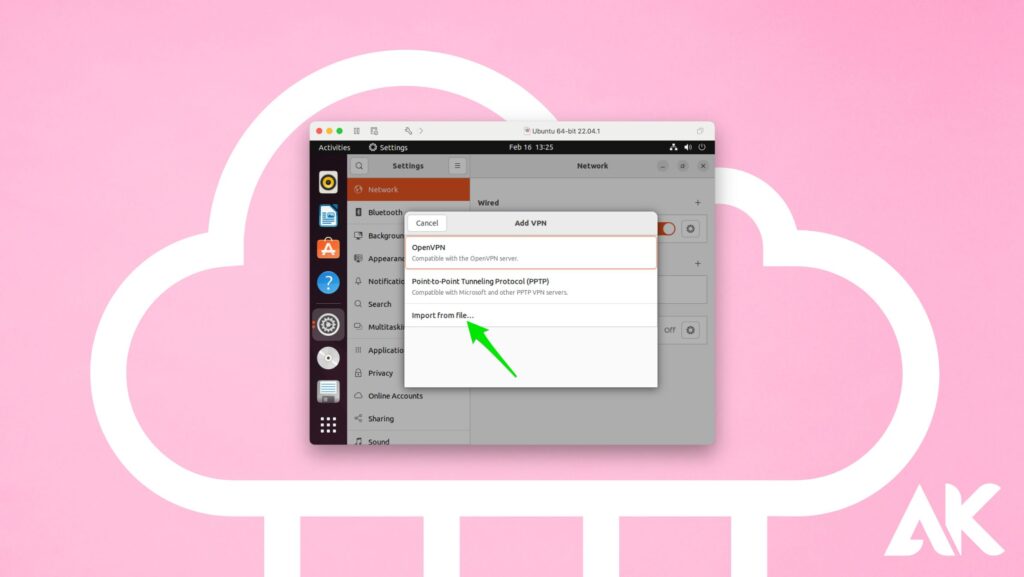A secure VPN setup for Linux Ubuntu is difficult. The good news is that it’s not as difficult as you may have thought. With a decent VPN setup for Linux Ubuntu, your online activity will remain private, safe, and unfettered, particularly while utilizing public Wi-Fi or viewing geo-blocked material.
This article includes seven professional suggestions that genuinely ease your Ubuntu VPN setup. These pointers can help you increase security, enhance connection stability, and avoid typical setup errors, regardless of your level of experience.
For you to experience safe browsing without technical hassles, we aim to make the VPN setup for Linux Ubuntu simple to comprehend and quick to execute. Let’s explore the essential advice that truly makes a difference.
Why VPN Setup Matters for Linux Ubuntu Users

Linux Ubuntu is a favorite among tech-savvy users for its open-source flexibility and security-first design. But even with Ubuntu’s strengths, your internet traffic is still exposed without a VPN. A proper VPN setup for Linux Ubuntu can:
- Hide your IP address
- Encrypt your data
- Bypass geographic restrictions
- Prevent ISP tracking
The key is doing the setup right—using trusted methods and avoiding common pitfalls.
1. Choose a VPN with Native Linux Support

Not all VPNs are created equal, especially when it comes to Linux support.
Look for:
- A dedicated Linux app or command-line tool
- Clear installation instructions for Ubuntu
- Support for OpenVPN or WireGuard protocols
- Good privacy policy and no-logs commitment
Here’s a quick comparison of some VPNs with solid Linux support:
| VPN Provider | Linux App | Protocols Supported | Kill Switch | Ubuntu Support |
|---|---|---|---|---|
| NordVPN | Yes (CLI) | OpenVPN, NordLynx | Yes | Excellent |
| ExpressVPN | Yes | OpenVPN, Lightway | Yes | Excellent |
| ProtonVPN | Yes (GUI + CLI) | OpenVPN, WireGuard | Yes | Excellent |
| Surfshark | Yes (CLI) | OpenVPN, WireGuard | Yes | Good |
| Mullvad | Yes | WireGuard, OpenVPN | Yes | Excellent |
Pro Tip: Always check if your chosen VPN offers installation instructions for the exact Ubuntu version you’re using (e.g., 20.04 or 22.04).
2. Use OpenVPN or WireGuard for Stronger Security

A successful VPN setup for Linux Ubuntu starts with using secure, efficient protocols.
Why OpenVPN and WireGuard?
- OpenVPN: Battle-tested, highly secure, widely supported
- WireGuard: Faster, modern, and simpler codebase
How to install OpenVPN on Ubuntu:
sudo apt update
sudo apt install openvpn
For WireGuard:
sudo apt update
sudo apt install wireguard
Once installed, your VPN provider should supply .ovpn files (for OpenVPN) or configuration scripts for WireGuard.
Pro Tip: WireGuard is faster but may require extra setup for privacy-conscious users. Stick with OpenVPN if you’re new to Linux networking.
3. Use Network Manager for Easy GUI Setup
While command-line setups are powerful, the Network Manager provides a friendly graphical interface on Ubuntu.
Steps:
- Open Settings > Network > VPN > Add.
- Choose “Import from file” if you have a
.ovpnconfig. - Enter your VPN username and password.
- Save and activate.
This method simplifies connection management and is perfect for those who prefer a GUI over a CLI.
Pro Tip: Install the OpenVPN plugin for Network Manager if not already present:
sudo apt install network-manager-openvpn-gnome4. Enable Auto-Connect and Kill Switch for Maximum Protection
A VPN isn’t useful if it disconnects silently in the background.
To ensure you’re always protected:
- Enable auto-connect on startup.
- Use a kill switch to block internet access if the VPN disconnects.
Auto-connect setup via CLI:
You can configure systemd or Network Manager to auto-connect on boot.
For NordVPN users:
nordvpn set autoconnect on
Kill switch:
Most VPN apps have a built-in kill switch. If not, use ufw (Uncomplicated Firewall) to restrict traffic to VPN-only.
Example UFW command:
sudo ufw enable
sudo ufw default deny outgoing
sudo ufw allow out on tun0 from any to any
Replace tun0 With your VPN interface name.
5. Test Your VPN Connection Effectively
After completing your VPN setup for Linux Ubuntu, testing is critical.
What to check:
- IP address location
- DNS leaks
- Connection speed
Tools:
- IP check: https://whatismyipaddress.com/
- DNS leak test: https://dnsleaktest.com/
- Speed test: https://speedtest.net/
Also, run this command to confirm your VPN interface is active:
ip a | grep tun
No tun0 or wg0 showing? Your VPN may not be running.
Pro Tip: Use the command dig or nslookup to verify DNS settings and avoid leaks.
6. Add VPN to Startup for Convenience
To avoid manually connecting every time you reboot:
For GUI users:
- Open Startup Applications.
- Add your VPN CLI command (e.g.,
nordvpn connect).
For CLI users:
You can create a systemd service that launches your VPN at boot:
sudo nano /etc/systemd/system/vpn-autoconnect.service
Add:
[Unit]
Description=VPN Auto Connect
After=network.target
[Service]
Type=simple
ExecStart=/usr/bin/nordvpn connect
Restart=on-failure
[Install]
WantedBy=multi-user.target
Then enable it:
sudo systemctl enable vpn-autoconnect.service
This ensures your VPN setup for Linux Ubuntu works as soon as your system starts.
7. Keep VPN and System Updated
VPN software, like any other tool, needs regular updates to patch vulnerabilities and improve performance.
Best practices:
- Update Ubuntu regularly:
sudo apt update && sudo apt upgrade
- Reinstall VPN software if a new version is available.
- Watch for logs or errors in the system journal:
journalctl -xe
If something breaks after a system update, try reinstalling your VPN client or checking compatibility with the latest Ubuntu version.
Conclusion
A proper VPN setup for Linux Ubuntu is your first line of defense against surveillance, hackers, and data leaks. Whether you prefer using the terminal or a graphical interface, these 7 expert tips will help you configure a reliable, secure VPN connection.
Quick Recap:
- Choose a VPN with strong Linux support
- Use secure protocols like OpenVPN or WireGuard
- Take advantage of Network Manager for easy setup
- Enable auto-connect and a kill switch
- Test your connection regularly
- Add VPN to the startup for seamless protection
- Keep everything updated
With these best practices, you can confidently browse the web on Ubuntu knowing your data is encrypted and your privacy protected.
FAQs
Question: What is the best method for VPN setup for Linux Ubuntu?
Answer: The best method for VPN setup for Linux Ubuntu is using OpenVPN or WireGuard through the terminal or Network Manager for a secure and stable connection.
Question: Can I use a free VPN for VPN setup for Linux Ubuntu?
Answer: Yes, some free VPNs like ProtonVPN support VPN setup for Linux Ubuntu, but premium services offer better speed, privacy, and more reliable connections.
Question: Is manual configuration required for VPN setup for Linux Ubuntu?
Answer: Manual configuration is not always required. Many VPNs offer Linux clients or configuration files that simplify the VPN setup for Ubuntu Linux.

